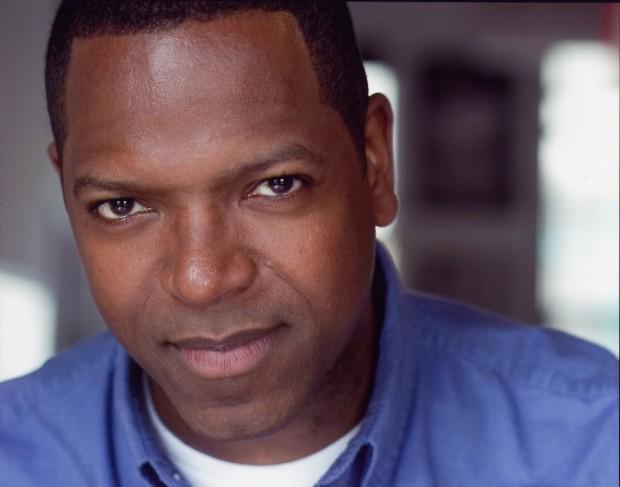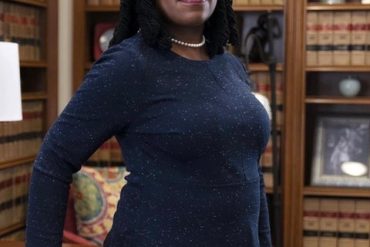James Vincent Meredith is an award-winning veteran actor who has appeared in a number of hit shows, including Boss, Chicago Med, Empire, Law & Order, and Shameless, to name a few.
In addition to his work in the world of film and television, the Chicago native has also been a mainstay on stage in such productions as August Wilson’s Radio Golf (Court Theatre), The Book of Mormon (National Tour), Flyin’ West (Illinois Theatre Center), A Raisin In The Sun (Goodman Theatre), and with an award-winning turn as John Proctor in The Crucible (Steppenwolf Theatre).
Meredith recently returned to the Goodman to take on the role of “Avery” in the hot new play, Lottery Day. Written by Ike Holter and directed by Lili-Anne Brown, the play centers around the matriarch of a quickly gentrifying neighborhood that invites the lonely residents, hardcore activists and starving artists of her block to what she hopes will go down as a legendary barbeque – thanks to a special surprise. But her mysterious plan to revitalize her community may be the very thing that tears it apart.
N’DIGO recently sat down with Meredith to discuss his acting influences, his initial thoughts about the play, and the intricacies of playing the role of Avery.
N’DIGO: In your own words, who is James Vincent Meredith?
James Meredith: Just like everyone else, I’m many people. A husband, a dad, a son, a cousin, a nephew, an uncle, a neighbor, a friend. Better at some of these than others, but hopefully growing as a person everyday.
Who influenced you and made you want to be an actor?
I’ve always had the desire to be a performer. I was certainly a big admirer of Spike Lee’s first few films. Watching Denzel Washington and Wesley Snipes chop it up in Mo’ Better Blues made me want that drive to be that great and focused at something. There’s a few stills of that movie where Denzel has two fingers against his lips, with the trumpet in the other hand. And he’s thinking hard about a scene, maybe. I started doing that early on in my career and I still catch myself doing it sometimes.
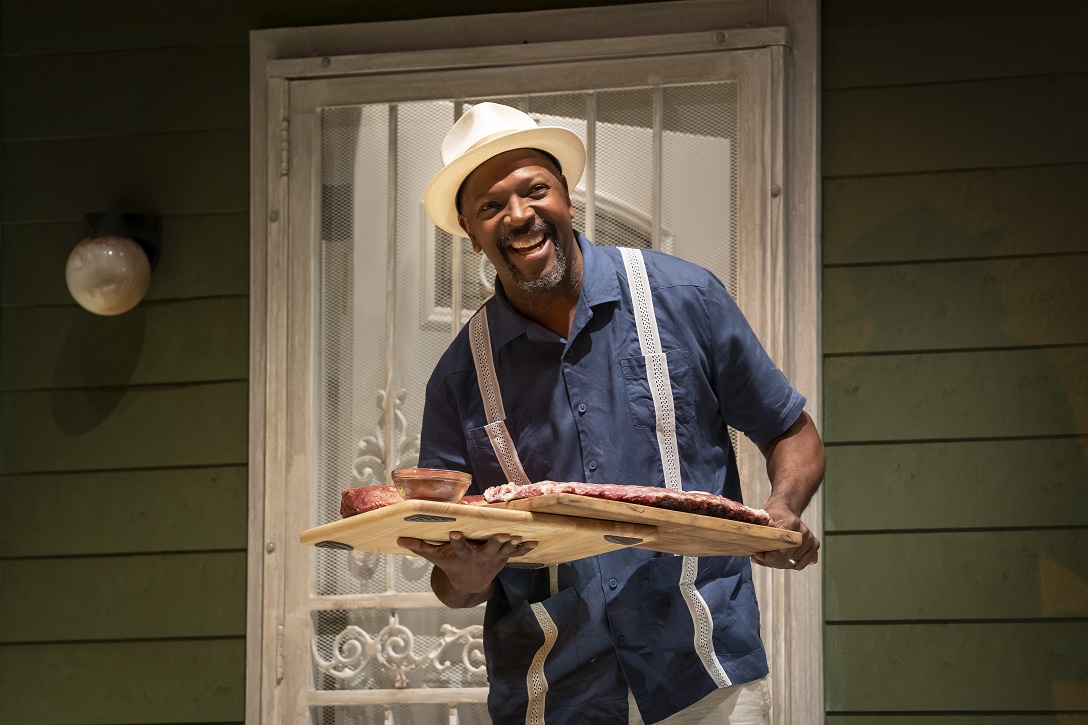
The business isn’t easy. Being a working actor is an accomplishment in itself. Was there an “a-ha” moment when you knew that you’d be able to make a living doing this?
What’s so wild about this journey to Lottery Day is that it took me 19 years to return to the Goodman. My last show here was A Raisin in the Sun. There were giants in that cast: Harry Lennix, Irma Hall, T’Keyah Crystal Kemah, Celeste Williams, and others. And though I was scared to death to be up there with those actors, I felt like having the trust and faith in me that (Director) Chuck Smith had, gave me that bit of confidence that, with hard work, I could scrape together a living.
What were your first thoughts upon reading the script for Lottery Day?
Talk about scared! Ike Holter has a way of crafting conversations that cut away any wasted dialogue, yet infuses a level of heightened awareness of emotions that can change multiple times – within a line, even. His characters are quick of thought. Very Shakespearean in that respect.
And yet he also knows that real dialogue can be and often is messy. People talk over each other all the time. They want you to know that they’re listening, but need you to hear where they’re coming from. And often, we don’t listen because we’re too busy telling you why our opinion is the right one.
And so Ike crafts conversations that are very challenging to get right. Almost like a musical score. So the language and dialogue worried me technically, but his voice and ear for language and story is so on point that I read it and knew I couldn’t pass this up.
Avery seems to be a complex character. At first glance you may think he and Mallory are a couple, but then the true nature of their relationship is revealed. How did you decide your approach in playing Avery?
Ike’s approach with a new play – like any playwright’s approach – is to continue to mold and craft and nip and tuck throughout the rehearsal process. And Ike takes full advantage of the time afforded to sculpt scenes, giving out new pages of the script several times a week, all the way up to the last weekend of previews.
And so Avery’s arc changed significantly over the course of that process. He’s a very positive personality, very easy to like. But he has significant moral challenges, too. He also has a very co-dependent quality that becomes more apparent by the end of this play, a facet that wasn’t as present in initial versions, but which Ike has crafted beautifully here.
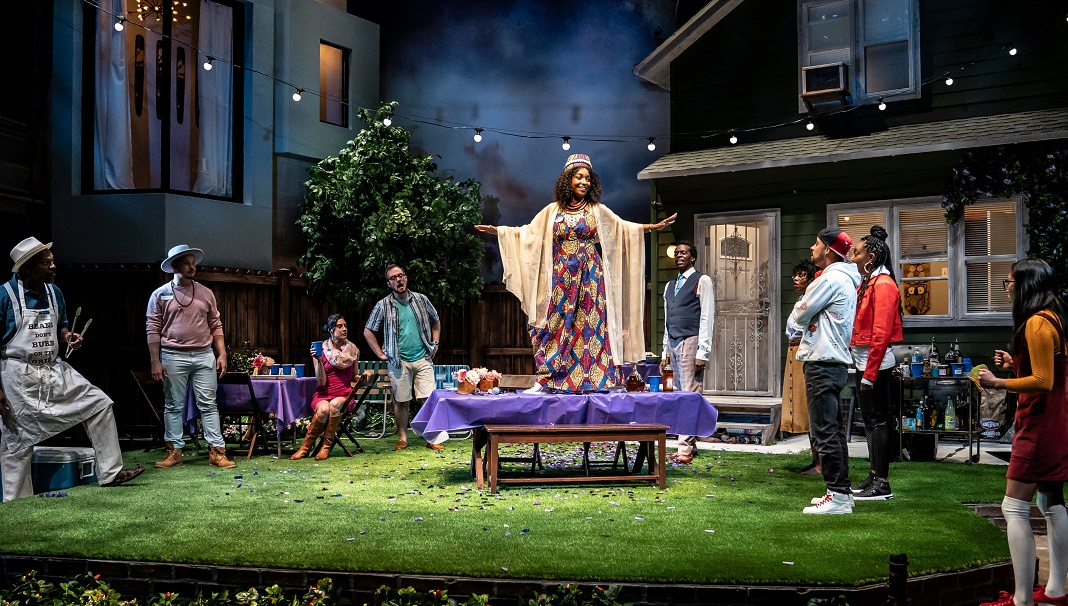
Do you have a specific pre-show routine or ritual that you must do before every performance?
I really don’t have a routine. But I usually try to go on a long walk before first preview and opening night. I often need that time to walk my nerves down.
Can you talk a little about working under the direction of Lili-Anne Brown?
I had worked alongside Lili-Anne as an actor years back, but was really excited to be in the room with her as a director. She knows the value of time spent as a family at the beginning of the process – particularly with this play. And I think she’s able to mine that seemingly relaxed time for clues on how to guide each person in the room to do their best work in service of the story.
It’s a very collaborative room, but she’s got a clear direction that leaves no doubt about what she needs or wants from a specific moment to serve the play. She also does her share of musicals, which dovetails perfectly with the musicality of Ike’s language. They’re a perfect match.
With experience acting in film, television, and theatre, can you talk a little about the subtle differences in performing in each medium that most fans might not pick up on?
There’s so much that I’ve learned watching movie and TV actors. I remember doing a scene from Boss several years ago with an actor who I thought was playing as flat as cardboard. I kept thinking, this scene requires a lot from me, and I’m acting my ass off – what is this person doing?!
Several months later, I saw the scene and I couldn’t believe how much shade this character was throwing me. But she was doing it all with her eyes. Saying more with a glance or a sigh than I did with a page of dialogue. Changed my whole approach to camera. And I’m still learning. I’ll always be learning.
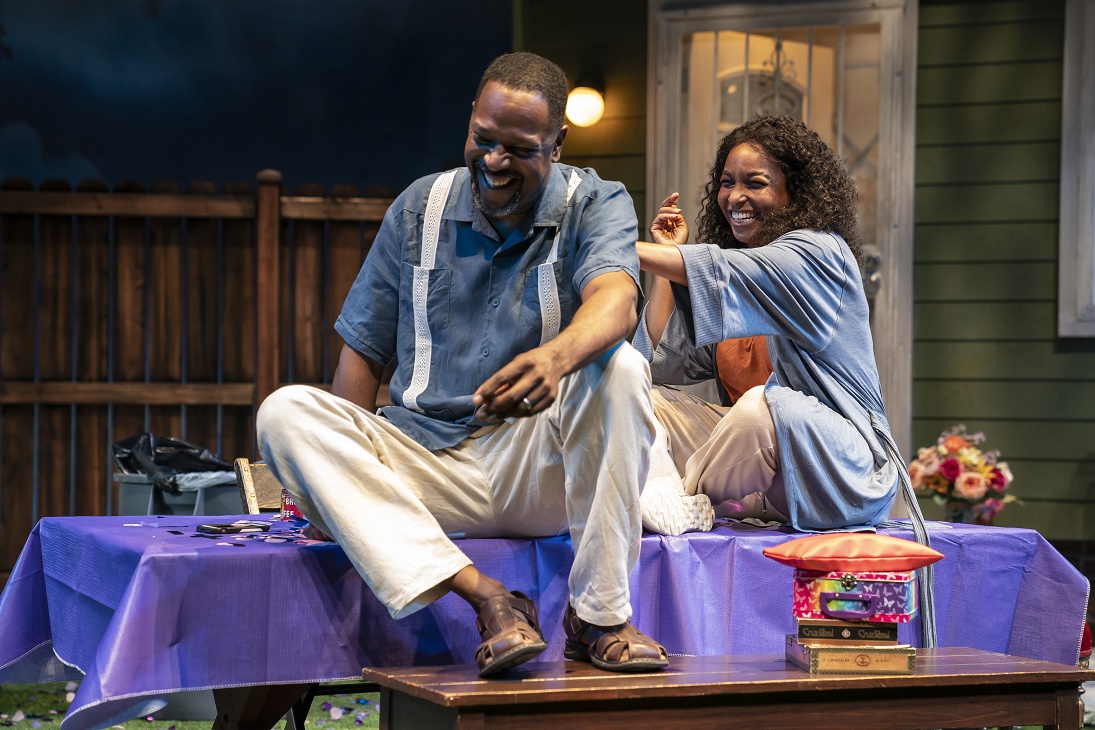
What’s something people would be surprised to know about you?
Probably that my stage fright has never left me, and I’ve been a “professional” for almost two decades. I have it every night of every show. I’ve just become better at dealing with it. I’m never at ease in a show until I’ve gotten through that first scene.
Best advice to young and aspiring actors?
Respect the work you’re doing right now. Whether it’s a reading, a workshop, a movie, a TV show, a play, or even an audition. People in this business are often just trying to get to the next bigger project. I get that. We all want to be thriving. But the gig you’re on right now is extremely important and is reaching someone in a way you can’t even imagine. Respect that. Honor that.
Favorite quote or affirmation?
Usually before every show I have to say to myself, “Calm the f^%# down; you’re ready!” You may not be able to print that, though!
What’s next for James Vincent Meredith?
I find myself increasingly drawn to stories that reflect who I am in this world through a more culturally focused lens. Did my first August Wilson this past fall and it was more powerful an experience than I could ever have imagined. Lottery Day will reverberate within me long after the final curtain. I’m hungry for more of that. Short term, though? I gotta teach my five year old how to catch in T-ball. Just had practice today. He can hit, but his fielding…man!
(Catch James in Lottery Day at the Goodman Theatre through April 28th. For more information, visit www.goodmantheatre.org/lotteryday.)


